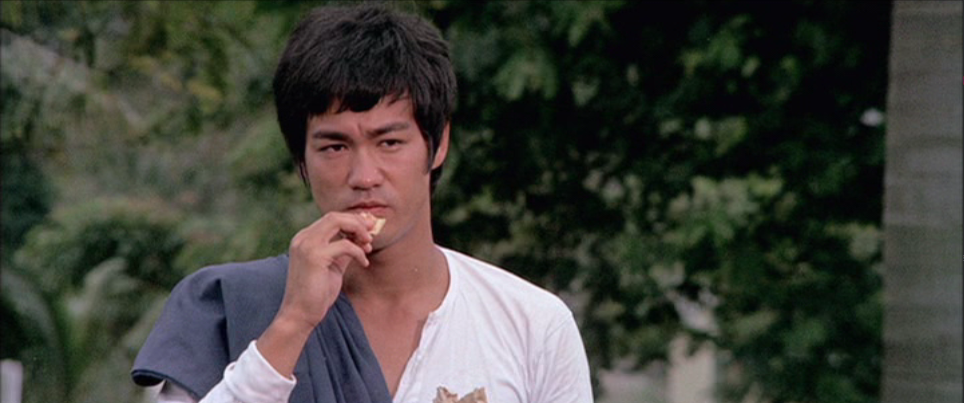Movie Review: The Big Boss (1971) directed by Wei Lo
Cheng Chao-An (Bruce Lee) is from an impoverished farming village in China. His kung fu skills are top-notch so he could probably make good money as a professional fighter, but his mother has made him swear on her jade pendant not to fight any more. Instead, he accepts an offer from a recruiter to emigrate to Thailand and live with other Chinese laborers. (Cheng calls the man “Uncle” and the immigrants are introduced as “cousins” but these may be courtesy titles.) The most competent cousin, Hsu Chien (James Tien) has secured work for Cheng at the local ice factory.

It’s a busy concern, and the pay is surprisingly good. Cheng clumsily breaks one of the ice blocks on his first day, and two of his fellow workers find a baggie of white powder inside. After work, those two are called into the manager’s office to get a bonus. They don’t come home afterwards. Hsu and another cousin go to visit the big boss Hsiao Mi (Ying-Chieh Han) to ask him to investigate. They don’t come home either.
The empty promises of management to investigate the disappearances no longer convince the workers, and labor unrest starts. It looks like Cheng might need to break his vow of non-violence!
This was Bruce Lee’s first Hong Kong movie after his Hollywood stint and the end of The Green Hornet television show. His role as Kato had been much more warmly received in the Asian market, and he was given first billing based on the name recognition. (The opening titles are just pictures of Mr. Lee!) The movie was filmed on location in Thailand, giving it an exotic flair by Hong Kong standards.
This is a grittier film than was common for martial arts flicks of the time. The villains’ motivations are small-scale and realistic, though their actions escalate due to miscalculating how badly the cover-up for their initial crimes would be taken. Cheng’s also a more complicated character than he first appears, allowing himself to be distracted by good times and fast women. Bruce Lee comes across as more vulnerable and less stoic than in some of his other movies.
The fight choreography is good, barring a couple of sight gags that don’t work with the tone of the movie. The voice acting? That will depend on which version of the movie you’re watching. (You’ll also find it under the name “Fists of Fury”, not to be confused with Bruce Lee’s next film Fist of Fury.) Dubs from this time period are notoriously uneven.
The ending is also a bit unusual for martial arts action films, as Cheng must face legal consequences for killing about a dozen baddies, including a wealthy business owner.
Content notes: Violence, including several gory deaths, partial nudity (and offscreen sex), physical abuse and unwanted sexual advances.
Overall: While not Bruce Lee’s best movie, this is a superior entry in the “more realistic modern day” subcategory of martial arts flicks. Recommended if you’re looking for that subgenre.

